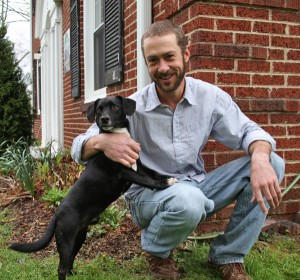Introducing Energy Savings for Appalachia
By Rory McIlmoil
As we reach the end of one of the coldest winters I have ever experienced, I have been thinking a lot about how the periods of deep freeze have impacted residents across the region. Two managers of rural electric cooperatives recently told me that they have seen record-high energy costs for many of their residential customers.
These costs are an ongoing burden for many in Appalachia, where rural and low-income residents often live in homes that waste significant amounts of energy. The high electric bills that result can inhibit a family’s ability to meet even basic needs. In fact, energy costs can consume 80 percent of a family’s income during some months.
This problem is rooted in the inability of residents to afford the upfront cost of making needed energy efficiency improvements in their homes, such as adding insulation, repairing air ducts and conducting basic weatherization. This is the problem that our Energy Savings for Appalachia campaign aims to address.
Through this innovative campaign, we are promoting “on-bill financing” home energy loan programs that rural electric cooperatives should be offering to help residents finance the cost of home energy improvements. Such programs are proving to be highly successful in South Carolina, where residential participants reduced their electric bills by an average of 34 percent, and Kentucky, where participating homeowners have achieved an average energy savings of more than 20 percent.
Cutting energy costs not only helps alleviate poverty by increasing the amount of income families have for meeting their basic needs, but also can boost rural economies. The new savings can be spent in the community, and the increased demand for local energy services — such installing energy-efficient heating systems — supports new businesses and job creation.
Employing energy efficiency can also have significant environmental benefits. By cutting energy waste, we can reduce demand for coal that is extracted through mountaintop removal coal mining and for natural gas that comes from fracking wells. The simple act of insulating a home is one more step toward building resilient and sustainable communities.
We need you to get involved if we are going to achieve our goal of seeing strong home energy loan programs offered by every electric cooperative in the region. One way you can do that is by visiting our Energy Savings Action Center and sending a letter to your electric utility requesting that they develop an on-bill financing loan program. After taking action, help build the movement by spreading the word about the Action Center and our campaign for saving money and energy (and the environment!) in Appalachia.
Related Articles
Latest News

Leave a comment
Your email address will not be published. Required fields are marked *







Leave a Comment